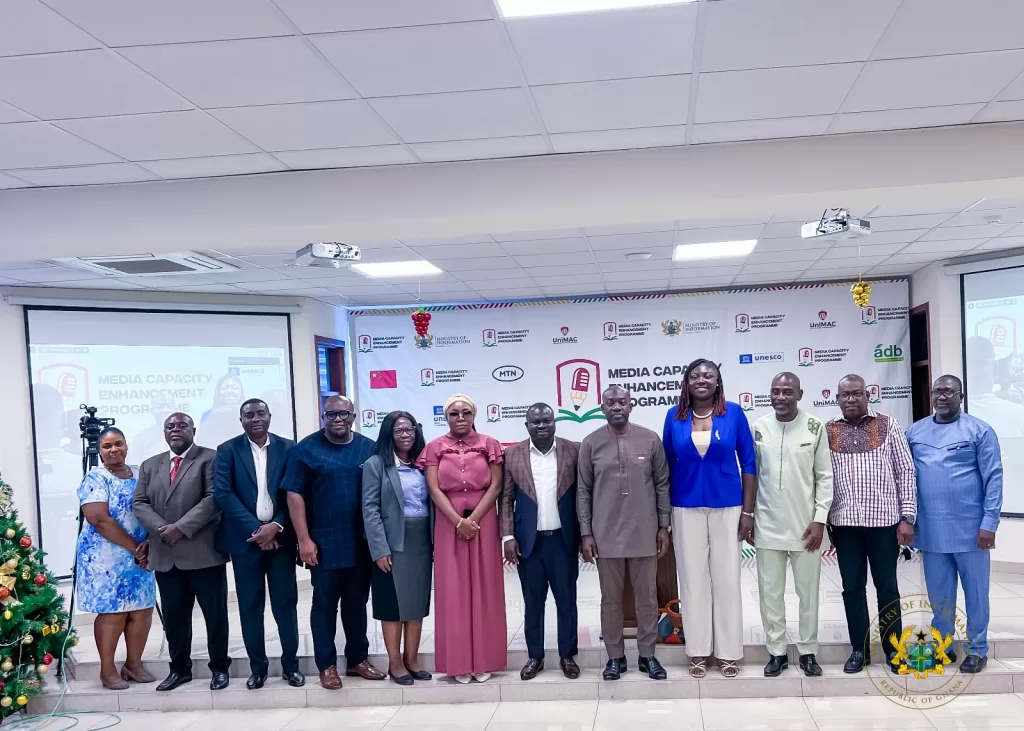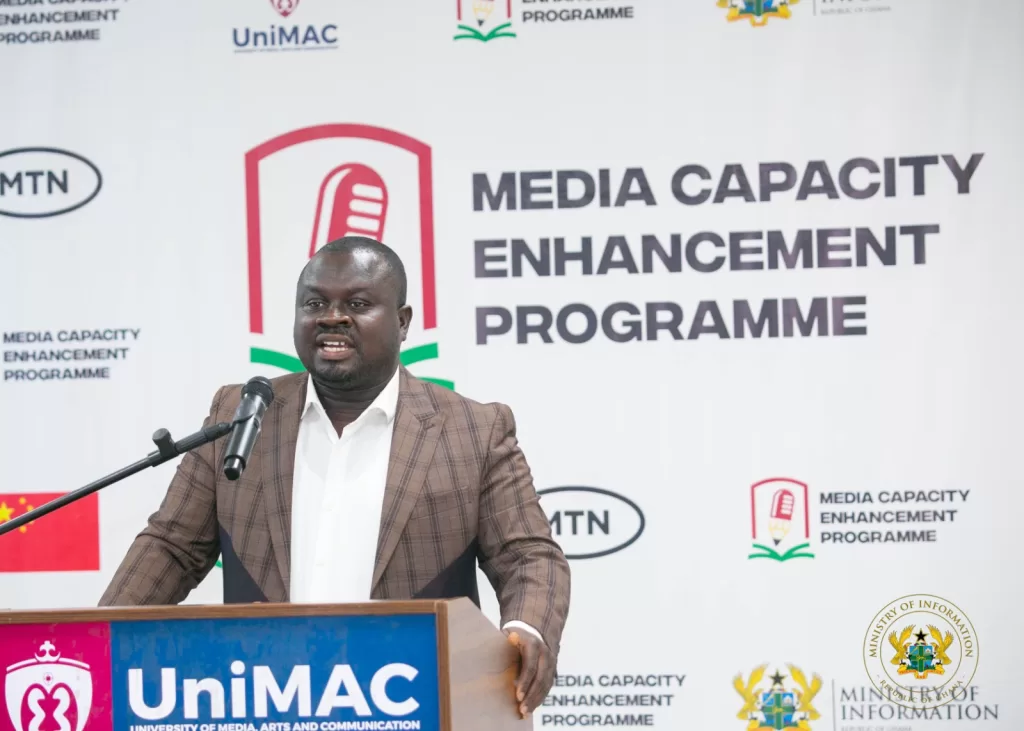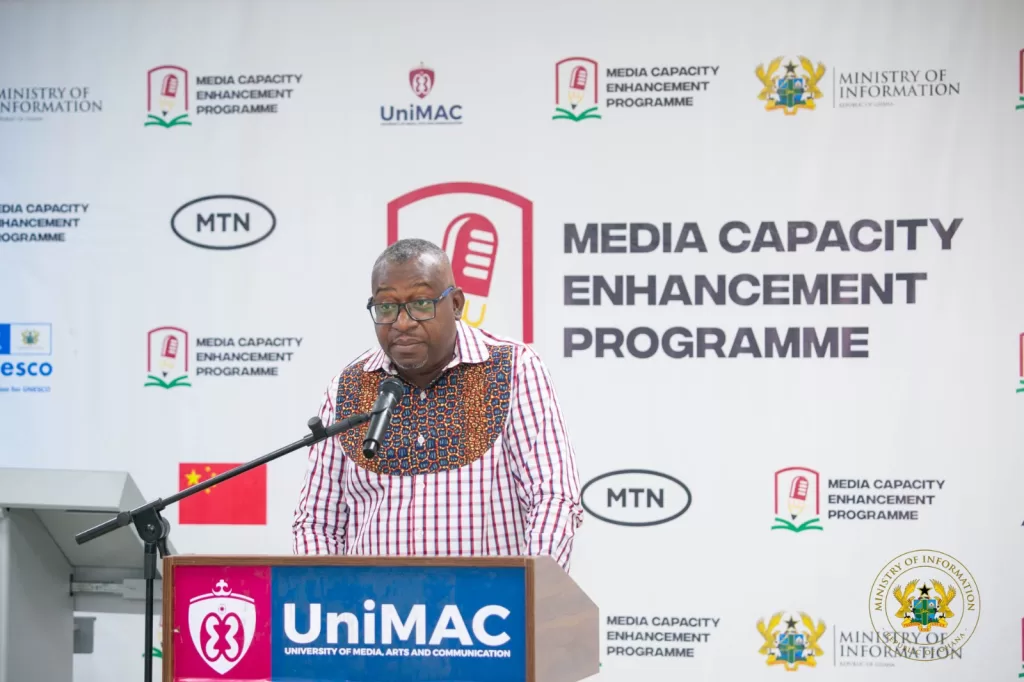By Gloria Anderson
The program which aimed at equipping journalists with essential skills and knowledge, was opened by the Minister for Information, Kojo Oppong Nkrumah, at a ceremony organised by the University of Media, Arts and Communications (UniMAC) on Monday, December 18, 2023.
In his keynote address, Minister Oppong Nkrumah emphasized the pivotal role of the training initiative in shaping the future of the media industry and democracy in Ghana. He stated, “this training is not just a routine programme; it is one of the most vital investments in the future of our media industry and our democracy.”
The Minister highlighted the unparalleled influence of the media in shaping the national agenda and guiding public discourse on various subjects. He expressed concern about the lack of formal training among many journalists, noting that while articulate and well-intentioned, a majority have not undergone formal journalistic training.
According to the Minister, this knowledge gap includes essential aspects such as ethics, responsibilities, contemporary practices, and nuances of the journalism profession.

The opening ceremony saw the presence of notable figures, including Professor Kwamena Kwansah-Aidoo, Chairman of the Working Committee and Vice Chancellor of UniMAC, Albert Kwabena Dwumfour, President of the Ghana Journalists Association, Andrew Edwin-Arthur, President of Private Newspapers and Online News Publishers Association of Ghana (PRINPAG), Cecil Sunkwa-Mills, President of the Ghana Independent Broadcasters Association (GIBA), and other dignitaries.
Prof. Kwamena-Aidoo emphasized the significant opportunities the capacity enhancement program provides for journalists to enhance and improve their skill sets.
He highlighted the importance of journalists continuously building their capacity to address and rectify issues in the profession.

GJA President Albert Dwumfour on his part commended the working committee for organizing the training program and expressed hope for increased journalist participation in future sessions.
He urged journalists to avoid partisan stunts and adhere to the ethics of the profession.
Mindful of the role of the media in our democratic dispensation, Mr. Edwin-Arthur advocating for increased attention and financial support from the government for the media. He said the media serves as an indispensable ally for democracy, playing a vital role in informing the public, facilitating discourse, and holding those in power accountable.
This, he advocated for increased attention and financial support from the government for the media.

Mr. Sunkwa-Mills urged journalists and media owners to prioritize the protection and preservation of the unity and stability of the country, especially as the nation approached an election year. He emphasized the responsibility of journalists to put the country first in their daily reportage.
The second edition of the MCEP focuses on training 42 journalists selected from various media houses across the country.
The program aims to have a broad and positive influence on the overall standards and practices of journalism in the country by drawing participants from diverse media organizations and training them on six different journalism modules in a four-day session.








![“I made Shatta Wale who he is today” – Singer Kay Smooth alleges [Video]](https://ghananewss.com/storage/2023/04/Kay-Smooth-Shatta-Wale-100x75.jpeg)

![Mr Logic’s Red Panther record label officially signs two Afro-dancehall artistes[Video]](https://ghananewss.com/storage/2023/05/Mr-Logic-signs--100x75.jpeg)







